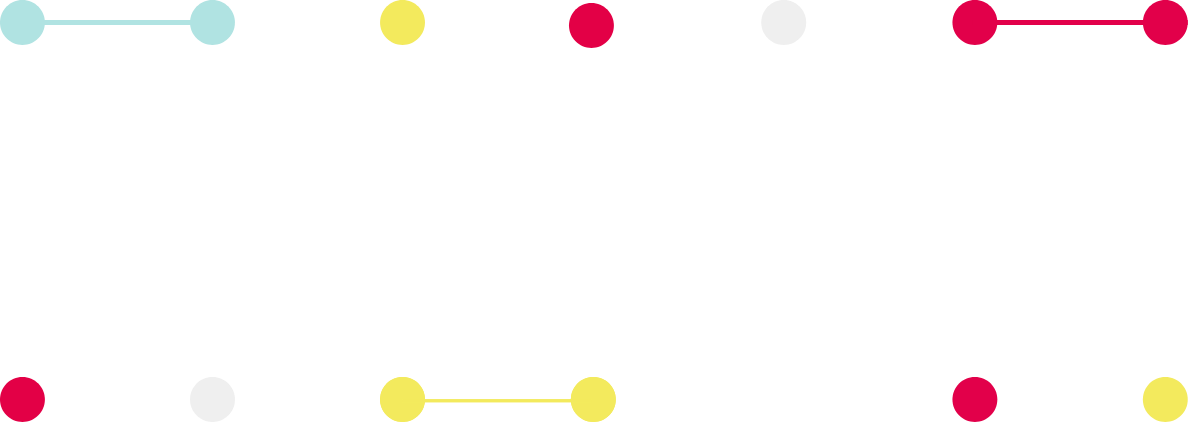“Trust yourself and don’t let the naysayers influence you.”
Welcome back to another edition of our Member Spotlights. This time we chat with CEO of Bolt Global Jamal Hassim, a visionary force in the realm of television media and WEB 3.0. With his finger firmly on the pulse of the ever-evolving digital landscape, he has specialised in starting, innovating, and operating media businesses. In other words, if you’re lost for cutting-edge ideas and ground-breaking media initiatives, Jamal is the man to turn to.
In this interview, Jamal talks us through his journey and experiences, his determination to democratize content creation, empower up-and-coming influencers, and challenge traditional models of media distribution and commercialization.
Let’s jump straight in…
First, we want to know from Jamal what he thinks of today’s media landscape
“Broadcast media is still thriving but in need of new strategies to build audience traction, while social media platforms are struggling for a long form strategy to foster long-term relationships. My company, Bolt Global (“Bolt”) aims to socialize long-form content, engaging Gen Z and future generations. If broadcast and more substantive content are to be embraced by Gen Z and future generations, it’s got to be via a more engaging model. You see something like broadcast tv and YouTube thriving over a longer period of time because they are longer form formats in the most part. Shorter form content platforms will largely go through cycles as they don’t build a long term need from the global population. Fun fact: I was supposed to be one of YouTube’s founding members. To my great chagrin, I didn’t think it was going to make it. I went on to do other things and they went on to make tons of money!” Jamal shares.
We ask Jamal to tell us more about Bolt’s model.
“Broadcast and streaming platforms struggle to keep up with consumer demand for content, resulting in unsustainable models where networks bear the primary cost of content production. We propose a future where networks collaborate with content creators, sharing in the upside without shouldering the expense. This approach addresses the challenge of consumers consuming content rapidly without wanting to pay, allowing networks to adapt to the voracious consumption habits of today’s audiences.”
In an article, we read that Jamal wanted to provide access to information to those who are unbanked and under banked, through minimal data bandwidth. We ask Jamal how that works.
“Access to information and connectivity are crucial issues that need attention. Centralised institutions, even if independent, often set their own agendas, leading to problems. The manipulated Brexit situation is an example where limited information resulted in a decision with economic consequences. Diverse perspectives are necessary to make informed choices.
Our goal is to provide the public with news from multiple sources, allowing them to form their own opinions. But accessing diverse platforms is challenging in developing markets. Bolt looks to addresses this by consolidating all available media information in one platform. Bolt is also collaborating with it’s hardware partners to solve the problem of delivering valuable content at reduced costs of delivery to audiences even in far flung locations. ”
We definitely recognise the need for a platform where eco chambers can be disrupted. But how does Bolt still ensure user engagement and profitability?
“There are two main questions to address here. The first is how to keep people engaged, and the second is how to achieve commercialisation. Ensuring user retention is crucial, but it becomes problematic if commercialisation cannot be achieved. We have consciously avoided building revenue algorithms that are complex opaque to content creators. Via the use of the blockchain content creators are able to see their earnings on a “live” basis and are able to withdraw those earning on an immediate basis. There are no artificial hurdles to earning income, and each content creator can start earning with their first follower.
Bolt is working on implementing effective AI technology to stop from pushing similar types of content to viewers, unless asked to do otherwise. Personal frustrations arise when platforms like YouTube or Netflix keep feeding repetitive content, making it challenging to discover new things. In contrast, unless users have selected favourites for updates, we randomise the content we serve. Regarding commercialisation, we sell based on this approach. We make it clear that if someone wants continuous forced content, there are other platforms available, but not ours.”
We ask Jamal how Web 3.0 makes Bolt different from other social media platforms
The key difference of Bolt in Web 3.0 is the wide range of monitoring and commercialization tools that it can offer to it’s content creators. This leads to more sustainable outlook for content creators to practise their craft on Bolt, through being able to plan better and earn through more channels from their valuable content IP.
In it’s constant quest for innovation, Bolt aims also to decentralise cloud infrastructure through as part of their Web4.0 concept next. Bolt’s approach involves creating a decentralised cloud server network using consumer hardware like TVs as peers, providing access to basic services and addressing the information gap in remote areas.”
At the risk of being too blunt, we ask Jamal: how does he make the money?
“We generate revenue through advertising and sponsorship on your channel. We retain 10% while you keep 90%, as we believe in the success of everyone involved. Additionally, if you offer a subscription service, we take a 5% cut, and you keep the remaining balance. When someone tips you, we retain 5% while you receive most of the tips. Lastly, if you wish to convert your earned tokens into cash/fiat, we charge a small off-ramp fee, or an on-ramp fee if it’s a fiat to token transaction. This model represents the future of media, ensuring its survival and relevance to the evolving global community’s needs.
After the launch of it’s proprietary blockchain, branded as BoltChain, Bolt will offer “white-labelling services to content players who wany to create their own custom Web3.0 domain”
Back to Web3.0 decentralisation. Is that where the idea of Bolt’s decentralised exchange came from?
“BoltX (Bolt’s digital asset wallet and decentralized exchange) operates as a marketplace where you can utilize your earned tokens. Apart from converting them to cash, you can also swap them for other cryptocurrencies like Bitcoin. Our marketplace provides a seamless and user-friendly experience for these transactions. Additionally, content owners can use the marketplace in BoltX to sell merchandise and products, allowing businesses to promote their offerings and direct customers to BoltX for purchases. It serves as an extension of our Web3 initiative, sitting on decentralised infrastructure.
We ask Jamal about the challenges he might face in expanding to other countries
“When content doesn’t align with regional, cultural, or political views, it poses a challenge. With millions of content creators on our platform, coping becomes crucial. We’re collaborating with a data company in the security space to address sensitivities. However, it’s a work in progress, and we’re cautious about unnecessary censorship. While certain areas like gambling-related content may be restricted in specific jurisdictions, expressing political views won’t be censored. Our goal is to empower the community to self-govern, but we’re still in a learning phase to effectively decentralise platform governance.”
We ask Jamal whether he’s reaching out to individuals who have already established a significant following on other platforms, and if so, how he is encouraging them to join Bolt
“We disagree with that model for two reasons. Firstly, it’s costly to implement. Secondly, we’ve seen cases where followers don’t necessarily align with influencers or content creators. Our focus is on the 90% of the market that consists of individuals with modest followings, and helping them to grow their potential. Platforms like Twitch and YouTube took years for creators to amass millions of followers. It’s rare for newcomers to have a significant following unless they are a Kardashian, which is the exception rather than the norm.”
Is Jamal planning to give the Kardashians a call?
“I don’t think so. At the end of the day, Bolt is an open platform. Anyone can come, but we’re not going out there to overreach to try and reach them.”
Would Jamal count Bolt as his biggest achievement?
“I don’t really view it as an achievement, but rather as part of my learning journey. Being the first individual to own a private TV network in Asia was a great accomplishment, but it gave me first-hand insight into the pressures of the commercial model because it involved my own money. In contrast, working for a network makes it a secondary concern. The pain I felt in that role motivated my pursuit of sustainability, which became a necessary milestone. Interestingly my time negotiating in the wilds of Papua New Guinea and other developing markets taught me the art of balance, reasoning, and being reasonable, shaping who I am today” he explains.
We ask Jamal for his piece of advice to entrepreneurs starting their businesses
“Trusting yourself and trusting the process are key. Many people will say it’s impossible, but only you truly know. Trust yourself and don’t let the naysayers influence you. Equally important is trusting the process, as it’s not just about the end result; the journey holds immense value. The final outcome may not align with your expectations, but the journey itself is transformative. Embracing it is crucial, even during the challenging days when you feel on the edge, staring into the abyss. Those difficult moments are part of the process, and by enduring them, you gain the assurance that better days will come. Survival through such times builds resilience.”
We ask Jamal about challenges he faced personally
“The media landscape is politically sensitive, and navigating it is always a delicate task. This challenge was particularly tough for me when I joined a major foreign media network that had politically aligned ownership, for a restructuring assignment. As a young professional with idealistic views, I was determined to accomplish my tasks regardless of the obstacles. However, it had repercussions not only for me but also for my family. Being a foreigner in a different country operating in a politically sensitive business added to the complexity. I was even lambasted in a Cabinet meeting by the Prime Minister of a foreign country! Nevertheless, I believe I made significant progress, as now Singaporeans now have opportunities to operate in politically sensitive media industries, overseas, that were previously inaccessible.”
Is there a quote that Jamal lives by?
“Maybe not a quote, but I go by the belief that perseverance is a must in entrepreneurship.”
We ask Jamal how his experience has been at Home Grown so far
“I joined Home Grown two years ago during the pandemic. It provided the productive workspace I needed for remote work. Unlike my previous membership at Home House, Home Grown’s focus on workspaces suited me better. I’ve attended intimate events there, like a corporate finance evening with a small group, which I found very refreshing and enjoyable.”
Through his dedication to innovation, Jamal has shown us what it means to be a visionary in this rapidly evolving digital landscape. Bolt is a testament to his boundless imagination, weaving together the fabric of media, blockchain, and digital assets to empower content creators with the creative and financial freedom they deserve.
Join us next week as we delve into the journeys of more members at Home Grown, uncovering their secret to success and the invaluable connections they’ve made within our community. Dream big and stay tuned!

If you’re interested in enriching your entrepreneurial experience and finding a strong community of entrepreneurs, investors and business leaders then contact our membership team at Home Grown.


